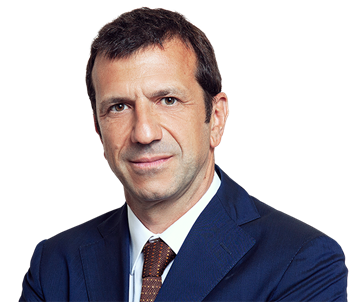International arbitration in 2024
The evolving landscape of arbitrator conflicts and disclosure requirements
By: Samantha Tan, Lluís Paradell Trius, Hinda Rabkin, Enisa Halili
IN BRIEF
With the 2023 adoption by UNCITRAL of a Code of Conduct for Arbitrators in International Investment Dispute Resolution providing for increased scrutiny of arbitrator disclosures and impartiality, and the revised IBA guidelines on conflicts of interest due to be published in 2024, these issues will continue to play a crucial role in arbitral proceedings over the year ahead.
One of the key benefits of arbitration is the parties’ ability to select their own adjudicators. This benefit is, however, subject to the fundamental condition that arbitrators be independent from the parties and impartial regarding the issues in dispute. Recent developments underscore the need for continued heightened attention to these matters and the importance of careful arbitrator selection to ensure the integrity of arbitral proceedings.
Social media and apprehension of bias
2023 brought some interesting decisions on conflicts of interest due to an arbitrator’s public statements made online or on TV.
At the start of 2023, the Paris Court of Appeal set aside an award due to the undisclosed close relationship between the chairman of the arbitral tribunal, Thomas Clay, and the claimant’s counsel, the late Emmanuel Gaillard. The closeness of their relationship emerged from Clay’s written eulogy for Gaillard that had been posted online in which Clay noted, among other things, that he and Gaillard had developed a “more personal” friendship and that he consulted Gaillard “before making any important decision”.
Also in 2023, the ICC upheld a challenge by a Middle Eastern party against an arbitrator based on alleged anti-Muslim comments made during a television broadcast. The challenging party relied on the 2021 Swiss decision in the Sun Yang case, in which a CAS award against a Chinese swimmer was overturned because of an arbitrator’s derogatory tweets about Chinese nationals.
These are unlikely to remain isolated decisions. The ubiquity of social media and ease of publication of video and audio recordings, combined with the rise in public expressions of personal convictions, create greater potential for arbitrator challenges and annulment proceedings owing to apprehension of bias. Arbitrators’ tweets and online posts, and perhaps even likes or reposts suggesting endorsement of certain views, may all trigger challenge attempts.
The revised IBA guidelines on conflicts of interest in international arbitration due in 2024 may include further guidance on the potential conflicts posed by arbitrator public statements, including those made on social media.
Disclosures in investment arbitration
The extent of an arbitrator’s disclosure obligation depends on the relevant arbitral rules and the law of the seat of the arbitration (if applicable).
Detailed disclosure obligations are set out in Article 11 of the Code of Conduct for Arbitrators in International Investment Dispute Resolution, adopted by UNCITRAL in July 2023 (the Code). In December 2023, the United Nations General Assembly adopted a resolution recommending the use of the Code by arbitrators, parties, institutions and States negotiating investment instruments. The year ahead will reveal how the Code is put into practice in investment arbitration. We are already starting to see investor-State parties referencing the Code in orders that govern the arbitration procedure, either as a mandatory or soft law instrument.
As a result, parties can expect increasingly robust disclosures from arbitrators in investment arbitration in the year to come. This does not necessarily mean that the disclosed information poses a conflict of interest or would justify a challenge. Thus far, increased disclosures by arbitrators do not appear to have caused an uptick in challenges against the disclosing arbitrator.

The past few years have seen a marked shift towards broader disclosures in investment arbitration which is expected to continue in the year to come. However, broader disclosure on its own does not mean there is a greater risk of conflict of interest.
Hinda Rabkin
Freshfields Senior Associate
"Double hatting" and "issue conflict" in investment arbitration
These matters will continue to be hotly debated when assessing conflicts of interest in investment arbitration this year. Given that investment disputes tend to raise a number of relatively limited and recurrent legal issues, an arbitrator’s prior or concurrent involvement as an arbitrator or counsel in other disputes may be regarded as impinging on his or her impartiality. But challenges on these bases have rarely been successful.

Broader disclosure coupled with the new restrictions on double-hatting may lead to a widening and diversifying of the pool of arbitrators over the longer term, especially those sitting in investment treaty arbitrations, as some of the commonly appointed arbitrators may be prevented from taking on certain cases.
Lluís Paradell Trius
Freshfields Counsel
On issue conflict, challenges have been rejected primarily on the basis that an arbitrator’s open mind should be presumed, even if the same arbitrator has decided similar issues in prior cases. This presumption has been rebutted in rare cases, such as when the arbitrator has decided a legal issue in various cases in the same way and has also expressed his or her views on the issue in academic writing (as was the case for the party-appointed arbitrator Professor Francisco Orrego Vicuña in Devas v India, although this decision has been criticized). The Code does not address issue conflict directly.
Challenges to arbitrators for double-hatting have also required specific circumstances to be successful. In 2022, a successful challenge was made against an arbitrator in an Energy Charter Treaty case because she had been instructed as counsel by investors more than 20 times to bring claims under the same treaty, including in several pending cases.
Had it been applicable, the new Code would have prevented the challenged arbitrator in the above case from accepting the appointment. Article 4 of the Code limits double-hatting by requiring an arbitrator to refrain from acting as counsel or expert in a case involving either the same measure, related parties or involving the same treaty, concurrently and for a certain period after the conclusion of the proceeding (between one and three years).
At this time, the Code can be applied by party consent or included in the arbitration agreement. ICSID is consulting with its membership on its application in ICSID proceedings. It remains to be seen how the Code will influence the selection and conduct of arbitrators in investment arbitration.
Top trends 2024
- Introduction
- Generative AI: opportunities and risks in arbitration
- Arbitration in times of crisis: conflict, sanctions, climate
- Energy transition: critical minerals industry challenges
- Arbitration Act 1996 reforms: ensuring London remains a leading seat for international arbitration
- EU campaign to end intra-EU investor-State arbitration: pushing investor creativity
- India: a new era for international arbitration?
- The evolving landscape of arbitrator conflicts and disclosure requirements
- Construction and environmental disputes from oil and gas decommissioning
- Public international law’s growing relevance for businesses
- Clarity or confusion? The implications of domestic court rulings for arbitration
- Is your life sciences contract susceptible to renegotiation or termination if the economics of the deal changes?
- Arbitration top trends archive
Our team
-

Samantha Tan Partner
Singapur
-

Lluís Paradell Trius Counsel
Rom, Madrid
-

Enisa Halili Principal Associate
Frankfurt am Main
-

Hinda Rabkin Principal Associate
New York